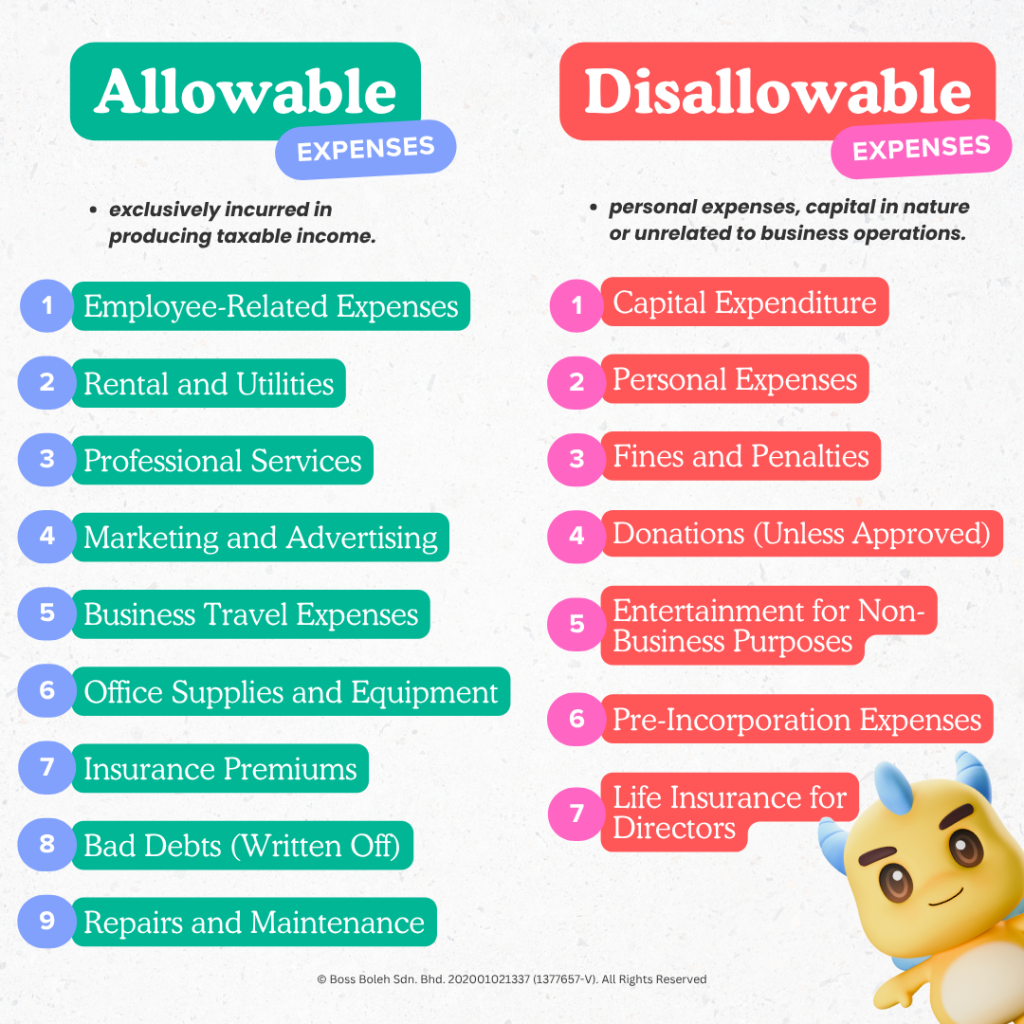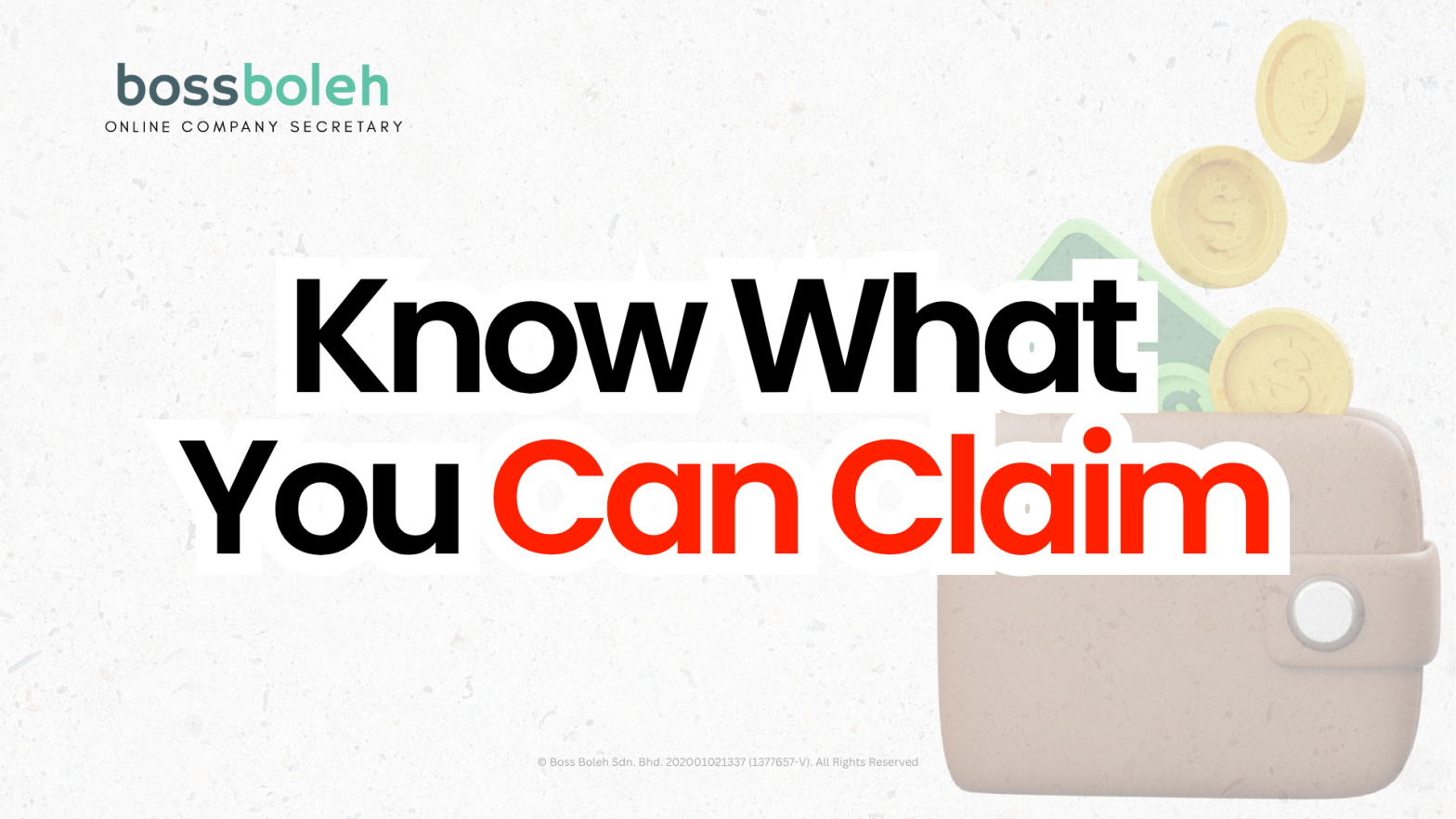Running a business comes with all kinds of expenses from paying rent and salaries to travel, marketing, and day-to-day operations. But not every payment you make can be used to reduce your tax.
Knowing which costs are truly deductible helps you file accurately and avoid problems with the tax authority later. Let’s look at the key differences between allowable and non-allowable expenses so you can claim confidently.

to help you claim smart and stay compliant.
1. Allowable Business Expenses
Allowable expenses are those spent purely for business purposes — to earn, maintain, or secure your income. These costs directly support your operations and are accepted by LHDN as tax deductible.
Some common examples include:
- Staff wages, bonuses and statutory contributions (EPF, SOCSO)
- Office rent, utilities and maintenance
- Business travel, transport and accommodation for work purposes
- Marketing, advertising and promotional activities
- Professional services such as accounting, audit or legal fees
- Office equipment, stationery and digital tools used for work
If an expense is used entirely for business purposes, it is generally eligible for deduction.
2. Expenses That Cannot Be Claimed
Not all expenses are accepted for deduction. Personal spending, capital costs and items not related to your business will generally be disallowed by LHDN.
Here are a few common examples:
- Private expenses such as groceries, household bills or family meals
- Fines, penalties or traffic summonses
- Donations or contributions not approved by LHDN
- Capital purchases like new machinery or vehicles
- Entertainment that does not serve a clear business purpose
Tips: If the expense benefits you personally even in part, it likely cannot be claimed in full as a business cost.
3. Expenses That Fall Into the Grey Zone
Some expenses sit in the middle—they have both personal and business elements. A good example is using the same phone, vehicle or internet connection for work and personal life.
In such cases, only the business-related portion can be claimed. For instance, if your phone usage is roughly 70% business and 30% personal, only 70% of the bill should be included as an allowable expense.
4. The Importance of Record Keeping
You can only claim what you can prove. Even legitimate expenses may be questioned if you cannot show receipts, invoices or payment records.
Keep your financial records neatly organised for at least seven years. Many business owners now prefer cloud-based accounting systems because they make it easy to upload, store and retrieve documents when needed.
5. Why Getting It Right Matters
Claiming non-allowable expenses can trigger audits or penalties, while under-claiming means you lose out on legitimate savings. Understanding the difference helps you stay compliant, reduce taxable income, and maintain accurate financial reporting.
Strong record keeping also reflects professionalism and supports healthy cash flow management throughout the year.
Knowing what you can and cannot claim is one of the simplest ways to protect your business from unnecessary tax risk. If you are unsure about certain expenses, always check with a licensed tax agent or accountant.
Smart claiming is not about claiming everything—it is about claiming correctly!
You’re welcome to join our community group to get exclusive and latest trend of business insight
① Join EN group
② Join CN group
Want to know more about starting a Sdn Bhd? What’s the best way to start one, and what should you be mindful of? Register and find out in our upcoming webinar!


For more information, get in touch with us on WhatsApp @018-767 8055 today!
